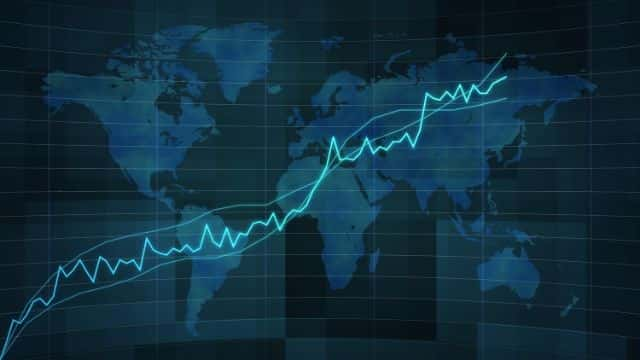On Sunday, Kingsview Wealth Management Chief Investment Officer Scott Martin argued that the US economy is in “terrible shape,” as inflation reached a new 40-year high.
Martin, a FOX Business contributor, made the remark on “Fox News Live” in response to the most recent Fox News poll, which revealed that almost all voters are concerned about inflation and that a large number continue to rate the economy negatively, with a majority expecting things to get worse next year.
Only 17 per cent of respondents thought the economy was doing well, the lowest level in nearly a decade. Eighty-four per cent believe it is only in fair or poor condition. And a majority of 52% believe it will get worse next year.
This is the first time since 1998 that more than half of respondents believe the economy will be worse a year from now.
Meanwhile, 52 per cent have changed their summer travel plans due to gas prices, 70 per cent have had to cut back on other spending to afford necessities, and 75 per cent have experienced financial hardship as a result of inflation, up from 67 per cent in December.
Many blame the White House for the country’s economic problems. Fifty-five per cent believe the administration has harmed the economy, and more voters blame Biden (31%) for rising gas prices than Russia (20%) or oil companies (14%).
“You’re going to see the polls continue to fall as some of the economic data, the inflation numbers continue to worsen,” Martin predicted.
Martin made the remark four days after it was revealed that inflation accelerated more than expected to a new four-decade high in June, as the cost of basic necessities remained excruciatingly high, exacerbating a financial strain for millions of Americans.
According to the Labor Department, the consumer price index, a broad measure of the price of everyday goods such as gasoline, groceries, and rents, rose 9.1 per cent in June from the previous year. Prices increased 1.3 per cent in May.
Both figures were significantly higher than Refinitiv economists’ forecasts of 8.8 per cent headline growth and a 1% monthly gain.

The rate of inflation was the fastest since December 1981, according to the data.
Price increases were widespread, implying that inflation may not have reached its apex: Energy prices increased by 7.5 per cent in June over the previous month and by 41.6 per cent over the previous year. Gasoline costs 59.9% more than a year ago and 11.2 per cent more than it did in May.
Meanwhile, the food index increased by 1% in June as consumers paid more for items such as cereal, chicken, milk, and fresh vegetables.
Hot inflation has put a strain on most American households, forcing them to pay more for necessities like food, gasoline, and rent.
Low-income Americans bear a disproportionate share of the burden, as price fluctuations have a significant impact on their already-stretched paychecks.
According to the Labor Department, the consumer price index, a broad measure of the price of everyday goods such as gasoline, groceries, and rent, rose 9.1 per cent from a year ago in June.
According to the Labor Department, the consumer price index, a broad measure of the price of everyday goods such as gasoline, groceries, and rent, rose 9.1 per cent from a year ago in June.
On Sunday, Martin described the economy as “terrible,” “especially if you think about it from the consumer level, but also from the producer level.”
“Think about all of the costs, such as gasoline and diesel fuel, that go into selling goods and delivering them if you’re a company out there,” he emphasized.
Last week, it was also revealed that wholesale prices rose again in June, as inflation spreads throughout the United States’ economy, squeezing businesses and American households with higher prices for most necessities.
According to the Labor Department, the producer price index (PPI), which measures inflation at the wholesale level before it reaches consumers, rose 11.3 per cent in June compared to the previous year. Prices increased by 1.1 per cent month on month.
Read more:-
- Orleans Da’s Trial Jason Williams Begins This Week With a Lot on the Line.
- The Trial of Former Trump Adviser Steve Bannon is Expected to Begin Soon.
- Chamber Awards Are Presented at the Annual Business Celebration.
Both of these figures are higher than Refinitiv economists’ 10.7 per cent annual and 0.8 per cent monthly estimates, emphasizing how strong inflationary pressures remain.
Markets have been volatile in recent months as the economy has been uncertain.
Martin recommended that investors maintain a “diversified basket of stocks.”
“Looking at what has probably the best potential to go up from here,” he added, “I believe it’s growth stocks and things in technology.”


